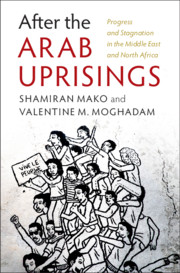Military Politics of the Contemporary Arab World
Aside from large-scale civic mobilisations, no force was more critical to the outcomes of the 2011 Arab uprisings than the armed forces. Nearly a decade after these events, we see militaries across the region in power, once again performing critical roles in state politics. Taking as a point of reference five case studies where uprisings took place in 2011, Tunisia, Egypt, Libya, Yemen and Syria, Philippe Droz-Vincent explores how these armies were able to install themselves for decades under enduring authoritarian regimes, how armies reacted to the 2011 Uprisings, and what role they played in the post-Uprising regime re-formations or collapses. Devoting a chapter to monarchical armies with a special focus on Saudi Arabia and the UAE, Droz-Vincent addresses whether monarchies radically differ from republics, to compare the foundational role of Arab armies in state building, in the Arab world and beyond.
- An in-depth exploration of the foundational role of Arab armies in state building
- Takes as a point of reference five case studies where uprisings took place in 2011, Tunisia, Egypt, Libya, Yemen and Syria, now a decade after the events
- Devotes a chapter to monarchical armies with a special focus on Saudi Arabia and the UAE
Reviews & endorsements
'Droz-Vincent's historically grounded, comparative study of the changing political roles of Arab militaries is both theoretically informed and rich in detail. By correctly placing those militaries at the heart of their respective political systems, he underscores this distinctive feature of Arab politics and its profoundly negative consequences for the Middle East.' Robert Springborg, Professor of National Security Affairs, Naval Postgraduate School
'Military praetorianism has epitomized the Arab world for decades, but it has not been uniform either in content or over time. Droz-Vincent deftly dissects the military phenomenon across three distinct phases of military predominance, culminating in the period since the 2011 uprisings. He focuses mainly on Egypt, Libya, Syria, Tunisia and Yemen, the countries most impacted by the uprisings, but the reader will find that he casts his analytic net more broadly.' John Waterbury, President Emeritus, American University of Beirut
'a valuable contribution to an oft-overlooked aspect of military forces in the region, namely their relations with power, notably civil power … Although ultimately a historical book, Philippe Droz-Vincent's work serves as a blueprint for the future, and what can be expected from Arab military forces as politicised but powerful actors.' Florence Gaub, The International Spectator
Product details
October 2020Hardback
9781108477420
302 pages
150 × 230 × 20 mm
0.6kg
Available
Table of Contents
- Introduction
- 1. The surge of armies in Arab states
- 2. Changing dynamics with the rise of authoritarian regimes
- 3. Armies living under enduring authoritarian regimes: the officer as an (influential) bureaucrat
- 4. Are Arab monarchies different?
- 5. Agency restored? Uprisings, surprise, army intervention and abyssal challenges ahead
- 6. Post-uprising eras and regime (tentative) re-formations
- Conclusion. Arab armies once again at the forefront.







